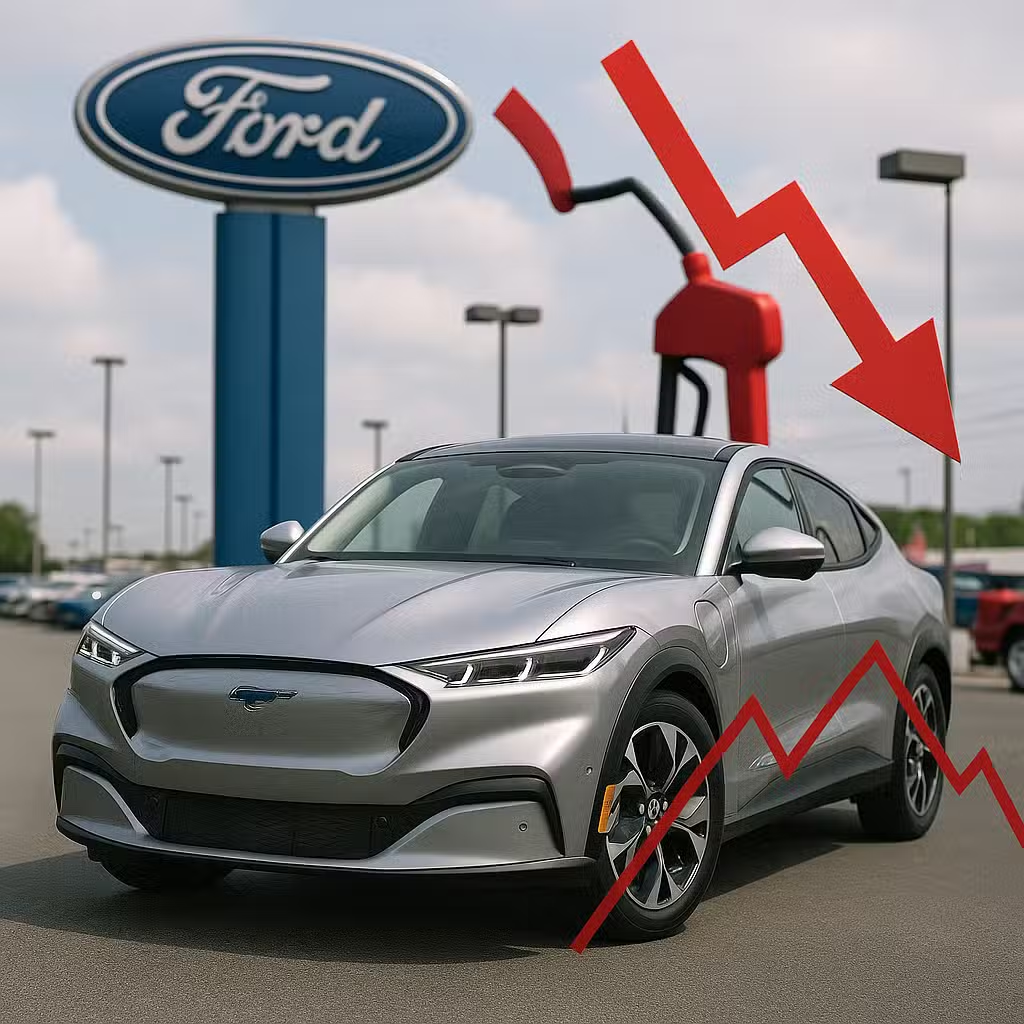Ford Warns Investors: EV Sales May Drop 50% as Tax Credits Expire, Impacting Growth Outlook
Imagine if your favorite video game suddenly doubled in price overnight—fewer people would want to buy it. That’s what’s happening now with electric vehicles (EVs), and it could shake up the whole car market.
What’s Happening with Electric Vehicles?
Ford’s CEO, Jim Farley, says he thinks sales of all-electric vehicles will drop sharply next month. Why? The government is ending a big tax break—up to $7,500—that made these cars cheaper for buyers. Without this discount, Farley expects EVs could go from making up about 10% of all car sales to only 5%.
This is important because Ford, like many car companies, has spent a lot of money building factories and making new electric cars. Now, they might have to rethink their plans.
Why Investors Should Care
If you invest in car companies, especially those focusing on electric vehicles, this news could affect your portfolio. When fewer people buy EVs, companies like Ford, Tesla, and others may see lower profits. This could also change the value of their stocks and even impact companies that make EV batteries or parts.
Bull Case: Reasons for Optimism
- EVs are still popular: In the last quarter, EV sales in the U.S. hit a record high—410,000 cars, up 21% from the year before, according to Cox Automotive.
- People like hybrids: Farley notes that “partial electrification,” like hybrid cars, are easier for customers to accept right now.
- Other perks remain: Some buyers can still get benefits if they buy cars made in America, even if they’re not all-electric.
- Long-term trends: Globally, EV adoption is rising. A 2023 IEA report says worldwide EV sales could hit 14 million this year, showing long-term interest.
Bear Case: Reasons to Be Cautious
- Higher prices: Without the $7,500 tax break, many EVs are simply too expensive for most people. Ford’s F-150 Lightning can cost over $90,000.
- Policy risk: The sudden change in government policy makes it harder for car companies to plan for the future.
- Possible oversupply: Automakers have built lots of new factories for EVs. If demand drops, they could be stuck with too many cars and not enough buyers.
- Uncertain market share: If EV sales fall to 5%, it could take years to recover to previous levels.
What’s Next for Ford and the Industry?
Ford and other automakers will have to adjust. Farley said they’ll need to figure out what to do with big battery plants and extra EVs they expected to sell. The industry may shift focus to hybrids or cheaper models. There’s also more pressure to innovate and find new ways to attract buyers.
Meanwhile, some investors may look for opportunities in companies that make hybrid cars, traditional gas vehicles, or even in energy and battery technology firms that support the whole sector.
Investor Takeaway
- Review your portfolio: Check if you’re too heavily invested in pure EV makers—diversify if needed.
- Watch hybrid and traditional auto stocks: These could outperform if pure EV demand drops.
- Track policy changes: Government incentives are powerful; stay updated so you can react quickly.
- Keep an eye on global trends: The U.S. EV slowdown might not match what’s happening in Europe or China.
- Look for bargains: If EV stocks drop too far, there may be buying opportunities for patient investors.
For the full original report, see CNBC







